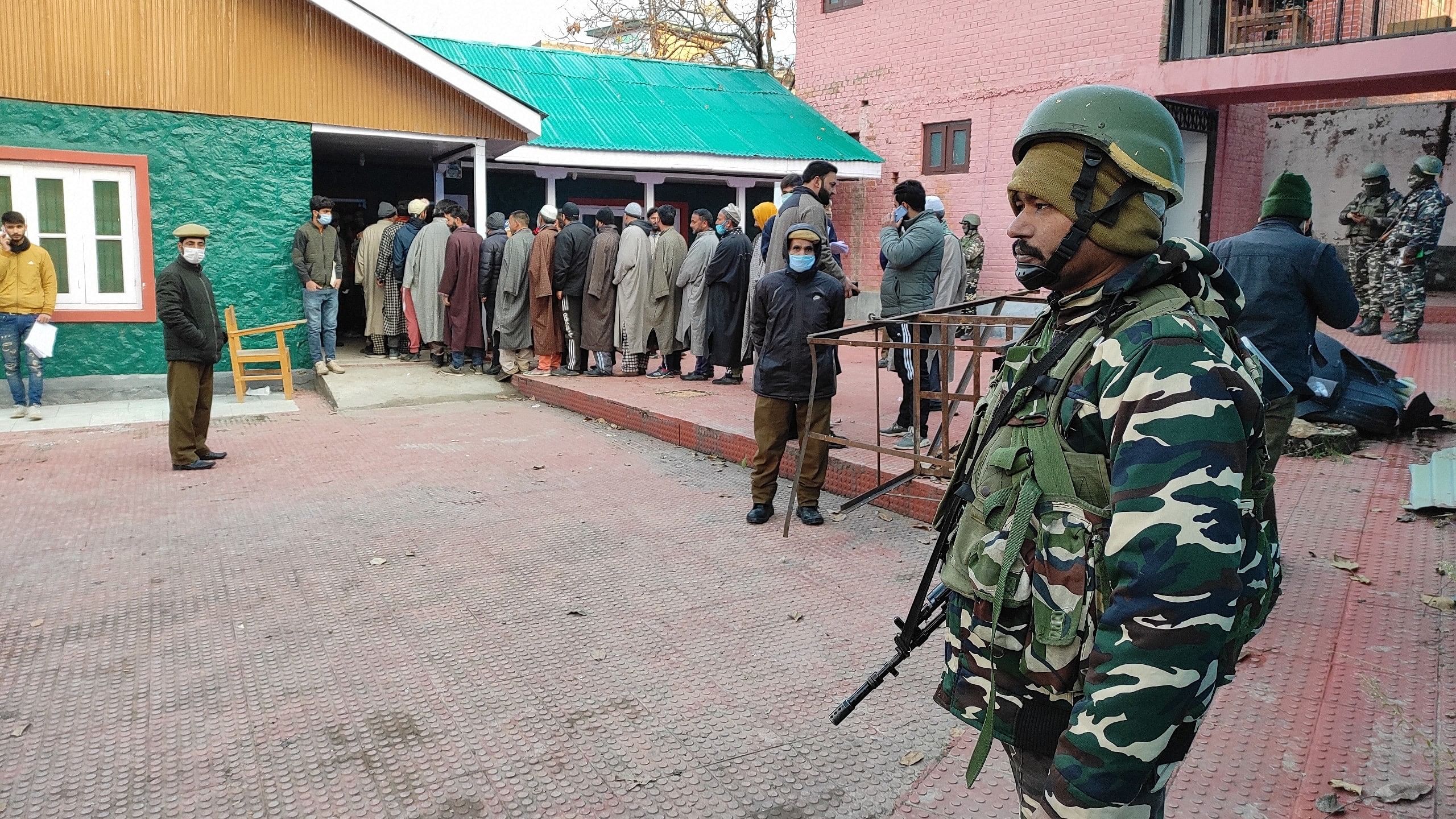
A security official keeps a vigil as voters stand in a queue to cast their votes for the District Development Council election, at a polling station in Srinagar.
Credit: PTI Photo
Srinagar: In a striking display of communal harmony, a Kashmiri Pandit temple and a mosque stand just 100-200 metres apart in the heart of downtown Srinagar, symbolising the enduring spirit of co-existence in a region often overshadowed by conflict and violence.
Despite the tumultuous history of Kashmir, the bond between the majority Muslim community and the minority Kashmiri Pandits remains strong, embodying the ethos of "Kashmiriyat" -- a cultural concept promoting brotherhood and mutual respect.
Local Muslims have taken an active role in supporting the Purushyar temple in the Habba Kadal area, fostering an atmosphere of respect for each other's beliefs.
Babloo Jee Bhat, the temple's caretaker for the past 18 years, expressed gratitude for the Muslim community's support.
"I live in a Muslim neighbourhood and they have always been supportive. I have never faced harm from anyone," he told PTI Videos.
Reflecting on the challenges faced by Kashmiri Pandits since their migration to Jammu in 1990, Bhat noted a significant improvement in the region's atmosphere since 2018, marked by the end of stone pelting and curfews.
"Life is returning to normal now," he said, countering negative stereotypes by emphasising that only a small number of individuals had disrupted the peace in Kashmir.
Sushil Kaul, the caretaker of another Hindu temple in the same area, echoed Bhat.
"I travel between Kashmir and Jammu, my family has always lived here. Muslims and Kashmiri Pandits have coexisted peacefully," he said, expressing hope for a future rooted in humanity rather than religion.
Rakesh Tiku, who oversees another Hindu temple nearby, highlighted the close proximity of the Valley's oldest mosque, just 50 metres away.
"We have never encountered any trouble," he affirmed, reinforcing the message of coexistence.
As the region gears up for the final two phases of the assembly elections on September 25 and October 1, residents are hopeful for a reaffirmation of their shared values.
"We want to see a Kashmir where people live together in peace and harmony," Kaul emphasised, underscoring the importance of community support and unity.
The experiences of Bhat, Kaul and Tiku serve as a poignant reminder that, despite the historical challenges, the essence of 'Kashmiriyat' continues to thrive, fostering resilience and hope for a harmonious future in the Valley.